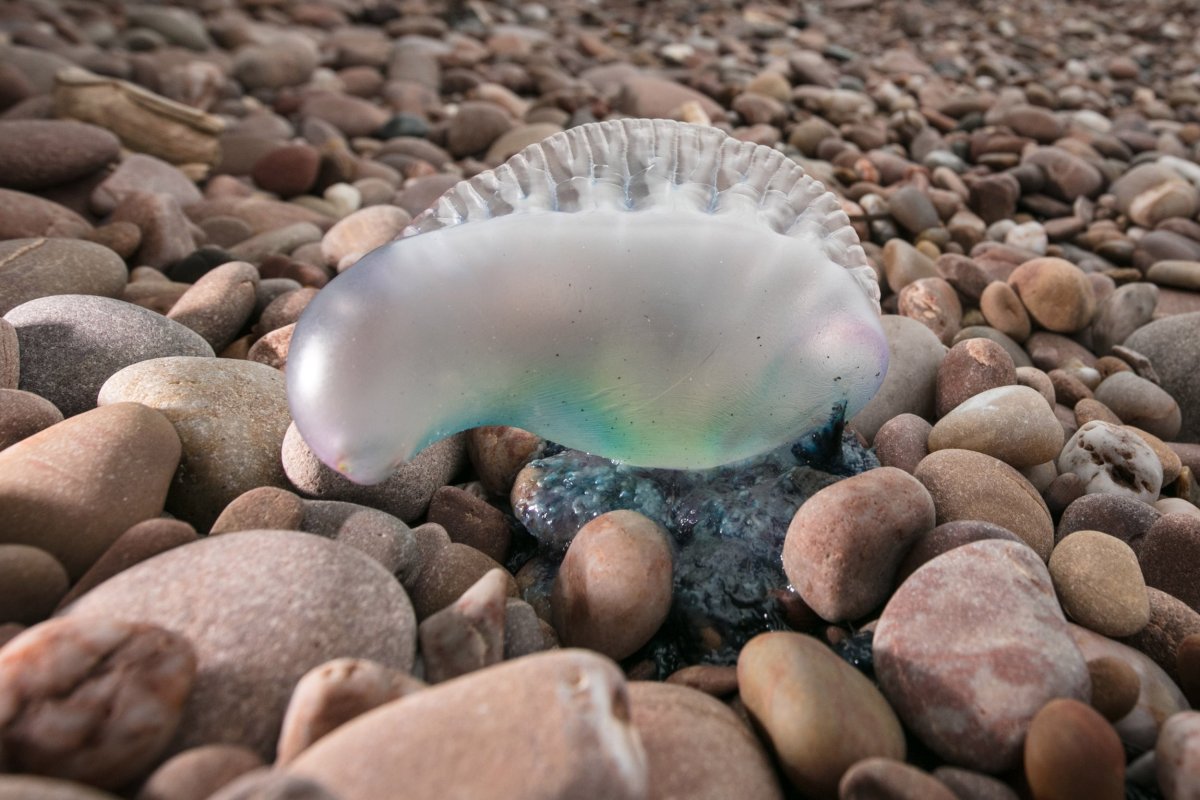Swim spots in Queensland, Australia have been shut down after bluebottle jellyfish stung thousands of beach goers.
Over the last week, around 13,000 stings were recorded on the Gold and Sunshine Coast regions, three times more than normal.
Read more: Blue button 'jellyfish' makes rare appearance on New Jersey coast
Surf Life Saving Queensland (SLSQ) said over 2,600 were treated for stings last weekend alone, in what it described as an "epidemic," ABC News reported.

Since the start of December, there have been more than 18,000 stings recorded in Queensland, compared with 6,000 for the same time last year.
Bluebottle jellyfish are around six inches long and their stings are painful but not life threatening, although they can cause problems for children, the elderly and those with allergies.
SLSQ warned beach goers not to pick up the jellyfish stranded on the tide lines and if stung, advised people to take a very hot shower and apply ice.
Surf Life Saving duty officer Jeremy Sturges said: "I have never seen anything like this—ever. Not everyone reacts the same way but there have been very serious reactions."
Something so small can cause so much pain #bluebottle #stinger #ouch pic.twitter.com/ABxaGimazY
— skippy 🦘 (@ukskippy72) January 6, 2019
The jellyfish are a common feature along the Australian east coast, but Lisa-Ann Gershwin, from the Australian Marine Stinger Advisory Services said a combination of strong winds and heat had caused the record numbers.
"A bluebottle has that sail that sticks up so the wind grabs the sail and drives them ashore," she told the BBC.
The blue fringes and the long blue tentacles of the bluebottle is a colony, not an individual which lives in armadas in the ocean and had trailing tentacles and a keel-like crest that acts like a sail, Australian Associated Press reported.
Uncommon Knowledge
Newsweek is committed to challenging conventional wisdom and finding connections in the search for common ground.
Newsweek is committed to challenging conventional wisdom and finding connections in the search for common ground.
About the writer
Brendan Cole is a Newsweek Senior News Reporter based in London, UK. His focus is Russia and Ukraine, in particular ... Read more
To read how Newsweek uses AI as a newsroom tool, Click here.








